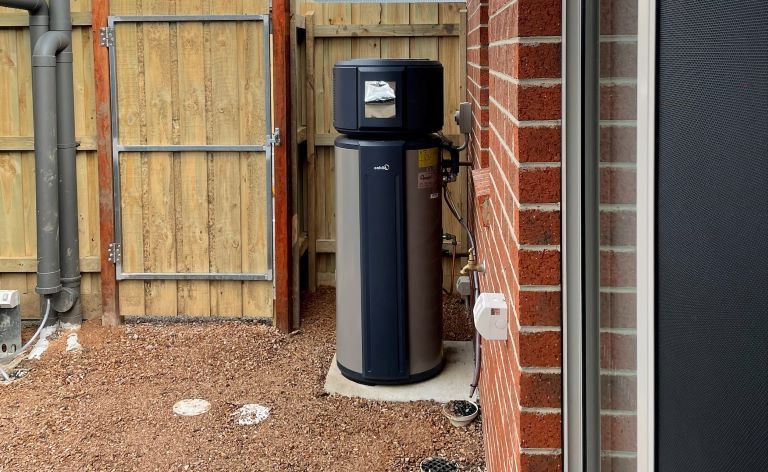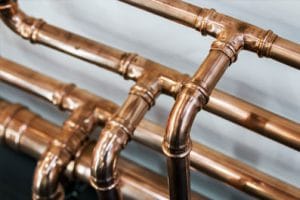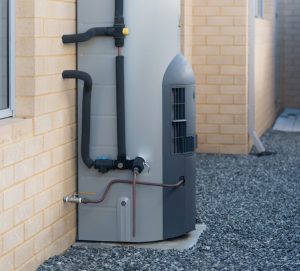Heat pump hot water systems are an environmentally friendly way of meeting your domestic hot water needs. They are much more efficient, typically using around 60-75% less energy than conventional fuel, oil and electric powered water heaters.
No wonder then that more and more homeowners are looking at installing the technology to replace their old gas-powered heaters.
But how exactly do heat pump water systems work? In this blog, we’ll explore the technology in more detail. This will give you a better idea about how they generate heat, the benefits they bring and whether they are the right type of system for your home.
How do heat pump hot water systems work?
Hot water heat pumps work in the same way as conventional heat pumps. A fan draws ambient air from outside before passing it over an evaporator coil which contains a refrigerant. A refrigerant is just a liquid that turns to gas at a very low temperature.
As the ‘warm’ air passes over the coil, the liquid refrigerant inside turns to gas. The gas is then fed from the coil into a compressor. If you can’t remember your physics lessons in school, compressing a gas increases its temperature.
You can experience this phenomenon yourself when blowing up a football with a bicycle pump. The pump gets warm as the temperature of the compressed air inside increases. This is basically what is happening inside a heat pump but at a much higher pressure.
The heated gas from the compressor is then fed through another coil which is immersed in a water tank. This transfers the heat from the hot gas to the water. As the heat is transferred, the gas in the coil condenses back into a liquid and the cycle starts over.
Do heat pumps work in cold climates?
Because heat pumps absorb heat from the ambient air outside, you may be wondering how a heat pump can generate heat if the air outside is cold. This is a good question and the answer may determine if heat pumps are the right solution for your home.
The colder the air outside, the harder a heat pump has to work to generate heat. Heat pumps are at their most efficient when the outside temperature is between 4ºC and 32ºC.
If you live in an area where temperatures are outside this zone, heat pumps may not be the most efficient option. To find out if a hot water heat pump is the most efficient solution for your home, get in touch with us to arrange a site visit.
Types of heat pump hot water system
There are two main types of heat pump hot water systems:
Integrated systems
With this type of system, the compressor and water tank are placed together in the same unit. This is then installed outside your home. This system is usually cheaper to install than a split system but requires a large area outside your home to install the unit.
Pros:
- Cheaper to install and maintain than a split system
Cons:
- The integrated unit requires a large flat surface outside for installation
- The water tank is outside so needs to be insulated to prevent heat loss
Split systems
Split systems separate the compressor and water tank into two different units. The compressor is installed outside, and the water tank is inside. These systems are more expensive to install and maintain but perform better in colder climates.
Pros:
- More efficient to run than integrated systems
- Perform better in colder climates
Cons:
- Requires space inside for the water tank
How do heat pump hot water systems compare to conventional systems?
Find out if a heat pump hot water system is the right choice for your home
Murphy Plumbing is the leading domestic and commercial plumbing contractor in the Hunter region. We supply and install a range of conventional and heat pump hot water systems to suit homes of all sizes.
To find out more about the solutions we offer, or to find out which is the most efficient hot water system for your home, arrange an appointment today by calling 02 4963 3922 or contacting us online!




